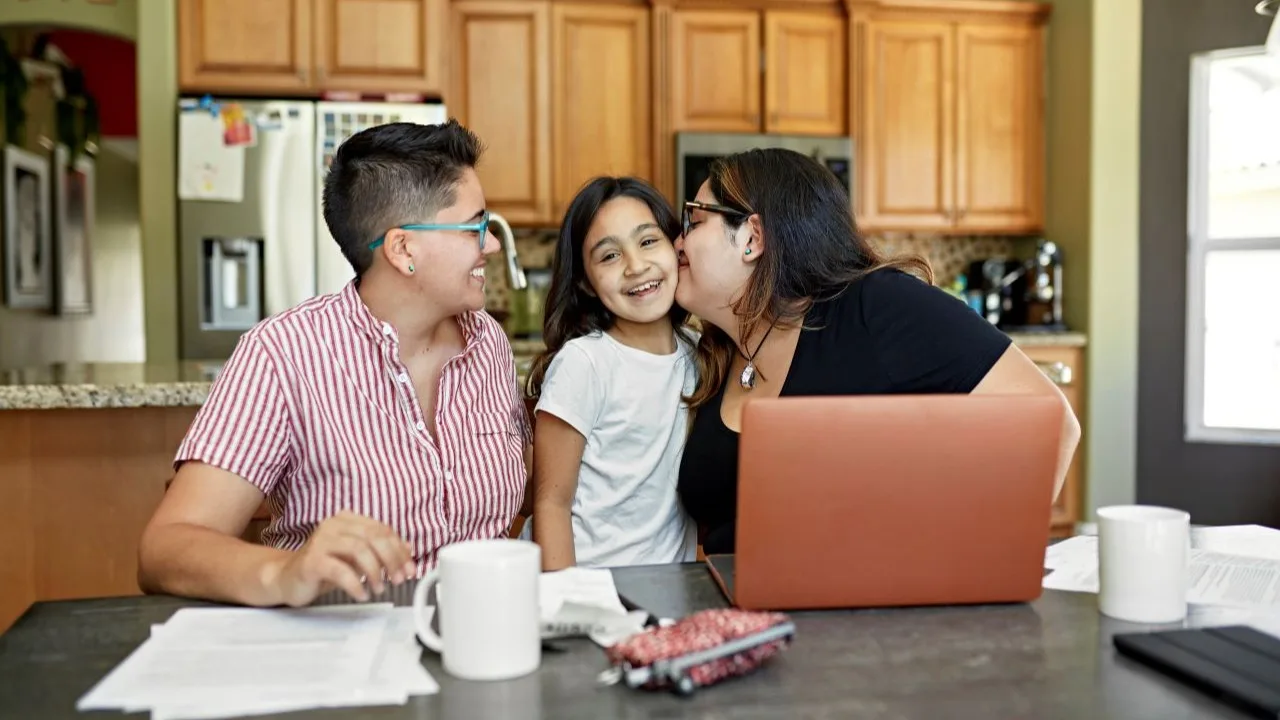At Achieve, we're committed to providing you with the most accurate, relevant and helpful financial information. While some of our content may include references to products or services we offer, our editorial integrity ensures that our experts’ opinions aren’t influenced by compensation.
Money Tips & Education
How to budget when your income is variable
May 09, 2024
Written by
Reviewed by
Key takeaways:
You can budget, build an emergency fund, and pay down debt, even when your income fluctuates.
The first steps are to track your income and expenses and then calculate your monthly averages—use an app to make this easy.
To get ahead faster, find ways to trim your expenses, bring in more money, or both.
If your income varies month to month, traditional budgeting may not work for you—since it assumes a predictable income. Financial freedom is within reach, even if your paychecks are irregular. With a little planning and a positive outlook, you can take charge and build the kind of financial stability that lets you breathe easier. Here are a few tips to help you save more, spend less, and hit your targets all year-round.
Budgeting basics
You can reach financial goals like paying off debt by aligning how much money you spend with how much money you get paid—even if the amount you earn changes month to month. Here are a few simple budgeting tips.
Track your income
Just because you earn more money one month than the next doesn’t mean you have to be at the whim of your paycheck. Keep track of your monthly income regularly so that if it is higher one month, you can allocate some of it to next month’s expenses. During lower-income months, you may want to tighten up your spending for a few weeks.
Track your expenses
In addition to logging how much money you get paid, keep track of how much you spend and what you spend it on. It’s important to know how much money you need for each spending category so you can create a realistic budget.
Come up with monthly averages
Once you track your monthly income and expenses for several months, determine how much money goes in and out of your account each month on average. Estimate how much you will earn and spend each month. This will help you spread your money out more evenly from the high-earning months to the lower-earning months.
Use a budgeting app
You don’t have to do all this tracking with a pencil. Budgeting apps sync up with your accounts in real time, so even as your monthly income changes, you can check that your spending habits are still on track.
The Achieve MoLO app shows you how much money came in and went out each month and compares it to the month before. This could help you spot patterns in your spending so you can build and maintain good habits, making changes when necessary.
Create a flexible budget for your variable income
When you have fluctuating income, make sure to give yourself breathing room in your budget and financial planning.
Fixed vs. variable expenses
Some monthly expenses will vary each month and some will stay the same. Fixed expenses are those that don’t change, like rent and auto loan payments. Variable expenses, on the other hand, include groceries, utility bills, credit card payments, and occasional expenses like vehicle maintenance. Sometimes you can control variable expenses (like deciding to buy one less pair of shoes this year) and sometimes the best you can do is know it’s coming (like knowing you’ll need new tires for your car).
Prioritize essentials
It’s certainly possible to reach your many financial goals—from paying off debt to taking a year-end vacation—without sacrificing all your spending. But you may have to make some strategic cuts. Prioritize essential expenses first, like rent, utilities, transportation, groceries, insurance, and minimum debt payments. Non-essentials are a choice that you get to make.
Allocate funds for intermittent expenses
Setting aside some of your income for irregular expenses is a way to make spending less stressful year-round. This is for those car repairs, holiday gifts, occasional vet bills, and other costs that pop up. You can dip into this money when you need to without having to trim back on any essentials.
Can I still save money or pay off debt with irregular income?
Yes, saving money and paying off debt is certainly possible with irregular income as long as you maintain a flexible budget. But you need to be intentional about it. If your income has high months and low months, you need to get a handle on covering your monthly budget before you can step on the gas when it comes to debt payoff and savings. Track your expenses and income. Make a spending plan that directs your money to your financial priorities before it’s unintentionally spent on something that isn’t all that important to you.
Cut expenses when you have irregular income
Having irregular income means having a lower income some months. Cutting down on your expenses will help you bridge the gap between low and high months, especially if you’re also building an emergency fund or paying down debt.
Here are a few practical tips to help you cut expenses:
Plan your meals and cook at home.
Reduce the number of subscriptions and recurring memberships you have.
Use coupons for entertainment and groceries. You can even shrink your restaurant budget taking advantage of online discounts, early bird specials, and other tricks like free birthday dinners or kids’ meals.
Find cheaper housing options if you can. If you can’t move to lower cost housing, consider finding a housemate to defray your costs at home.
Use reusable items. It can be fun to set a zero-waste goal and see how much you can avoid purchasing.
Consider consolidating your debt. Debt consolidation could save you money if you qualify for a better interest rate, or free up cash flow if you get a lower monthly payment.
Give yourself a day to think over purchases before buying to avoid impulse buys
Seek additional income opportunities to supplement irregular income
The higher your income, the more money you have to save, spend, and use to pay down debt. Side hustles and flexible jobs are one way to boost your income.
Here are a few side gigs to consider. Many have apps or websites you can join.
Walk dogs or pet sit
Offer childcare
Tutor students in a subject you know well
Start a dropshipping business
Become a virtual assistant
Help people move or run errands
Teach a language online
Rent out your garage
Build an emergency fund with irregular income
Stashing cash for unpredictable expenses like a surprise medical bill or job loss is a way to take some stress off the shoulders of your future self.
Tips for gradually building an emergency fund with irregular income
It’s certainly possible to save for emergencies even with irregular income. Here are some ways to do so over time:
Set a realistic savings goal. Determine how much money you’ll need in your emergency fund. Start small. Save the first $100. Then work on building it up to $500, and so on. Starting with a big goal like “three months’ expenses” could lead to discouragement and cause you to give up early on.
Take advantage of high-income months. When you have higher income, put more money in savings.
Automate your savings. Set up automatic transfers from checking to savings. With variable income, consider setting smaller automatic transfers so they can be covered each month, or set a calendar reminder to alert you when it’s time to transfer funds.
How much should I save for an emergency fund if my income is irregular?
Start by saving enough to cover an immediate emergency, like a car repair or an unplanned week off work due to illness. Any amount of money you can set aside for unforeseen emergencies is a good step towards financial security.
Once you have reached that goal, figure out how much money you'd need to live on for three months without any income at all, and shoot for that number.
The more unpredictable your income is, the more important it is to know what you spend and control your money. It’s entirely possible to create a budget and stick to it even if you don’t have a traditional biweekly paycheck coming in. Your budget is a written snapshot of how you choose to spend your money this month, and the more you know about what comes in and what goes out, the easier it is to create financial security for yourself.
What’s next?
Start tracking: Download a budgeting app or use a spreadsheet to begin keeping track of your spending and expenses. Within two or three months, monthly averages should become clear to you.
Calculate how much money should be in your emergency fund: Your emergency fund is a need, right up there with housing and food.
Spend less, make more: Find moves you could make that would help you increase your income or decrease your spending.
Make a plan: Remember that your plan can and will change now and then, and that’s okay. A solid budget and emergency financial plan take time to build, but you can make them better over time.
Author Information
Written by
Mallika Mitra is a writer and editor helping people make smart decisions with their money. Her work can also be found in CNBC, Bloomberg News, USA Today, CNN Underscored, The Wall Street Journal’s Buy Side, Business Insider, and more
Reviewed by
Kimberly is Achieve’s senior editor. She is a financial counselor accredited by the Association for Financial Counseling & Planning Education®, and a mortgage expert for The Motley Fool. She owns and manages a 350-writer content agency.
Related Articles
Some credit checks affect your score, but others don’t, even from the same lender. We’ll explain when and why credit checks can affect your credit.
Myth-busting: you don’t need to carry a credit card balance to have good credit! Learn how credit utilization affects credit scores.
Ready to take control of your money? Learn what a budget can do for you and how to make one.



